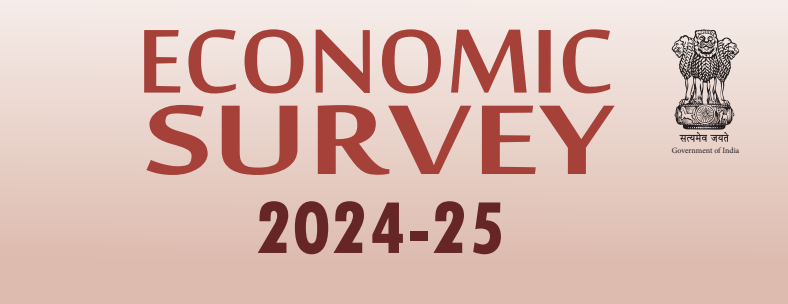TAG: GS 2: POLITY
THE CONTEXT: The Broadcasting Services (Regulation) Bill, 2024, represents a significant overhaul of India’s media regulation framework, aiming to replace the outdated 1995 Cable Television Networks (Regulation) Act.
EXPLANATION:
- Initially focused on television broadcasting, the latest draft of the Bill has expanded its scope to cover Over-the-Top (OTT) platforms, digital news broadcasters, and even social media content creators.
- This broadening of the regulatory ambit raises critical concerns about the implications for free speech and government control over digital content.
Definitions and Regulatory Expansion
- The Bill introduces a new, expansive definition of “digital news broadcasters,”.
- It includes anyone broadcasting news or current affairs through online platforms such as websites, social media intermediaries, or other digital mediums, provided they do so as part of a systematic business or commercial activity.
- This broad definition could potentially include a wide range of content creators on platforms like YouTube, Instagram, and X (formerly Twitter), especially those who monetize their content through advertising or subscriptions.
- Previously, the draft had excluded publishers of newspapers and their digital replicas, but the current version includes digital content published by newspapers that are not replicas.
- This inclusion significantly widens the scope, potentially subjecting a large number of independent content creators and social media users to government regulation.
Registration and Content Standards
- The draft Bill requires television broadcasting networks to register with the Central government, while OTT platforms must notify the government after reaching a certain subscriber threshold.
- The latest revisions also introduce the requirement for prior registration for digital news broadcasters and mandate compliance with prescribed standards for content evaluation.
- The Bill proposes to validate the “Code of Ethics” under the Information Technology (Intermediary Guidelines and Digital Media Ethics Code) Rules, 2021.
- These rules, which have been contested in the courts, prescribe a set of “do’s and don’ts” for content, potentially restricting the freedom of writers, editors, and publishers on digital platforms.
- The Bombay High Court had previously stayed these rules, citing that their vague and broad terms could have a chilling effect on free speech, as they could be used to penalize individuals for content that the government deems inappropriate.
Regulation of News and Current Affairs
- The Bill also seeks to regulate the broadcast of news and current affairs programs, excluding those in print, requiring them to adhere to a programme code and an advertisement code.
- This regulation extends beyond traditional media into the digital sphere, potentially placing restrictions on what can be broadcast online.
Government’s Rationale and Political Context
- A key driving force behind the expanded scope of the Bill is the role played by independent content creators in shaping public discourse, particularly in the lead-up to the 2024 Lok Sabha elections.
- The government observed that some creators produced content with sensational claims about the government and its leaders, prompting a push for greater accountability and regulation of such content.
- This perspective suggests a motivation to create a “level playing field” between mainstream media and independent digital creators.
- The government has been proactive in revising the draft, with multiple meetings held with industry stakeholders since the election results were announced in June 2024.
- However, the thresholds for when online content creators must notify the government remain undefined, leaving the extent of the Bill’s reach ambiguous.
Penalties and Exemptions
- The Bill imposes substantial penalties for non-compliance.
- For instance, news creators who fail to inform the government about the members of their Content Evaluation Committee (CEC) could face fines of Rs 50 lakh for the first offense and Rs 2.5 crore for subsequent violations within three years.
- The Bill does allow the government to exempt certain stakeholders to avoid “genuine hardship,” suggesting that some entities might be shielded from these regulations.
Concerns About Algorithmic Bias and Content Amplification
- Another significant concern for the government relates to the role of algorithms used by tech companies in amplifying certain types of content.
- Internally, the Information and Broadcasting Ministry, along with the IT Ministry, has discussed the potential biases in these so-called neutral algorithms, questioning whether they disproportionately promote certain narratives.
- Tech companies, however, maintain that their algorithms are user-driven, delivering content based on individual browsing histories rather than a deliberate bias towards specific content types.
Implications for Free Speech and Content Creation
- The Broadcasting Services (Regulation) Bill, 2024, raises several red flags regarding free speech and government regulation of digital content.
- The sweeping terms used in the Bill’s definitions and the expansive powers granted to the government for content evaluation and regulation suggest a potential tightening of control over digital media.
- The broad inclusion of digital content creators, coupled with stringent penalties for non-compliance, could lead to self-censorship and a chilling effect on free expression.
- While the government justifies these measures as necessary for transparency, accountability, and creating a level playing field, the lack of clarity in certain provisions and the potential for broad interpretation of the rules pose significant risks to the freedom of speech and expression in the digital age.
- The Bill’s impact will likely be a subject of intense debate, as stakeholders weigh the need for regulation against the fundamental rights guaranteed under the Indian Constitution.



